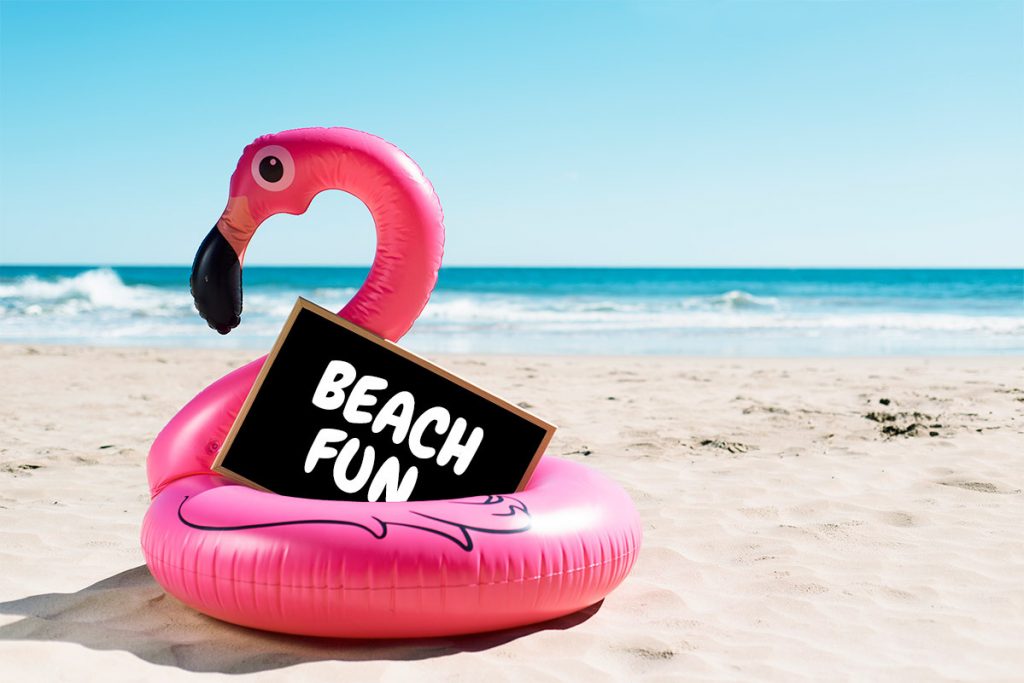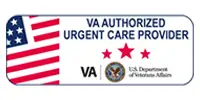A day at the beach is something many people look forward to about summer. It’s a great way to spend time together as a family for a few hours or several days. But, like many things, there can be a “down” side to spending time at the beach if you end up with a sunburn, jellyfish sting, water-born illness, or some other not-so-fun souvenir of your time. Being safe can prevent injuries and drowning.
Here are a few tips to keep in mind before you head to your favorite lake or seaside spot:
Teach everyone to swim.
While it may be too late for your beach vacation this year, being able to swim should be a life goal for everyone. Kids can start lessons as young as a few months old and should continue until they’re strong swimmers able to swim some distance and with good survival skills such as treading water and back floating. “There is a big difference between a proficient swimmer and being comfortable in the water,” says Roy Fielding (aquatics director at the University of North Carolina, Charlotte), who adds that everybody in the family should be comfortable.
However, pool swimming is much different than “open water” swimming which can – and usually is – full of surprises. (And, if you’ve never learned how to swim, it’s not too late! Most facilities which teach children offer some classes for adults as well.)
Look, think, talk.
If you’re planning on a day – or more – at the beach, be sure to check the weather forecast and the tide tables. When you arrive, check out surf conditions and any posted warnings. Be sure to observe any beach closure, advisory, or safety hazard signs. Before you arrive, talk about what might happen and how to respond if things do happen. Even if you’re not planning to swim in the water, such as fishing or looking at tide pools, be prepared to go in the water (think “fall in”!).
Practice and know “water sign language”.
Make sure everyone in the group knows two universal signals of sign language: Waving arms in the air = “Help!” and hand on top of the head = “I’m okay.” Playing in the ocean with big waves is a lot different than being in a pool, so practice diving under the water for rings and staying under for several seconds. Being comfortable in the water is the best way to prevent panic if someone suddenly finds themselves in over their head.
Be the lifeguard.
Teach kids never to swim alone. Using the buddy system means there’s always someone looking out for you or able to go for help. Even when there are lifeguards, designate an adult to watch children. It’s important to designate a specific person – and it’s fine to take turns – to be sure everyone knows who is responsible.
Don’t mix risky drinking with water fun.
Up to 70% of water recreation deaths of teens and adults involve the use of alcohol. Enough said.
Know what to do for jellyfish stings.
A large number of marine animals commonly grouped together as “jellyfish” can cause a painful, and occasionally life-threatening, sting. These include fire coral, hydroids, jellyfishes, and anemones. When you come into contact with the creature’s tentacle or other appendages which carry millions of small stinging cells, the “sting” occurs. Stings can range in severity from a mild burning sensation and skin redness to severe pain and blistering with generalized symptoms of illness (nausea, vomiting, etc.) Even broken-off tentacles in the surf or washed up on the beach can retain their toxicity for months and should never be handled.
If someone is stung:
· Get out of the water.
· Rinse the area with vinegar. (It’s a good idea to keep a small plastic bottle of vinegar in your beach bag.)
· Don’t rub the area.
· Use tweezers to pick out any tentacles still visible. Do not scrape with a card or other stiff material.
· Do not apply ice or ice packs.
· Immediately call 911 if you see symptoms of an allergic reaction. More information about treatment for jellyfish stings can be found here.
Waterborne illnesses.
Waterborne illnesses are caused by germs and/or chemicals found in water we swim in and are caused by swallowing or coming into contact with contaminated water in swimming pools, hot tubs, water parks, water play areas, interactive fountains, rivers, lakes, or oceans.
The most commonly reported symptom is diarrhea (caused most often by Cryptosporidium, Giardia, E. coli, Shigella, and norovirus), but encompasses a wide variety of infections, including gastrointestinal, skin, ear, respiratory, eye, neurologic, and wound infections. Learn more about water-borne illnesses.
Don’t hesitate to contact the health professionals at Integrity Urgent Care if you start feeling ill – and especially if symptoms persist or you run a fever – after time at the beach. Call or visit one of our convenient locations today. Summer is too short to miss out on even a day or two of fun from the after-effects of a fun outing at the beach. Happy summer, everyone!
Resources:
Auerbach P. I’ve been stung: what should I do? Drivers Alert Network [online]. Updated Mar 2004. [accessed 10 Jul 2019]. https://www.diversalertnetwork.org/medical/articles/I39ve_Been_Stung_What_Should_I_Do_UPDATED_2004
Integrity Urgent Care. First-aid handbook: Waterborne Illness. Integrityuc.com [blog post]. 25 Jun 2018. https://integrityuc.com/Blog/ArticleID/59
National Institute on Alcohol Abuse and Alcoholism. Risky drinking can put a chill on your summer fun. National Institutes of Health. Updated Jun 2019 [accessed 10 Jul 2019]. https://www.niaaa.nih.gov/publications/brochures-and-fact-sheets/risky-drinking-can-put-chill-on-your-summer-fun
Romero S. Outdoor water safety. KidsHealth.org from Nemours. Reviewed May 2019 [accessed 10 Jul 2019]. https://www.niaaa.nih.gov/publications/brochures-and-fact-sheets/risky-drinking-can-put-chill-on-your-summer-fun
Steere M. How to keep your kids safe at the beach. Outsideonline.com. 2 Aug 2013 [accessed 10 Jul 2019]. https://www.outsideonline.com/1917696/how-keep-your-kids-safe-beach






